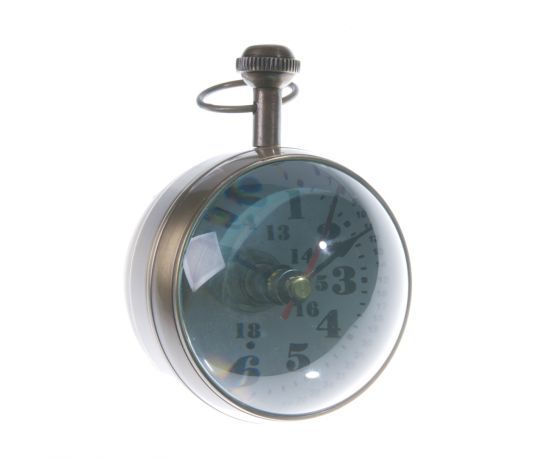We use cookies to make your experience better.
Ship Clock in real Quartz Sphere-XXL
John Harrison (verm Foulby, March 24, 1693 -. London, March 24, 1776) is the inventor of the chronometer, the first instrument to always indicated the correct time (including at sea). John Harrison was probably born in or Foulby at Wakefield (Yorkshire). It is known that he was baptized on March 31, 1693 in Foulby. In the beginning of the 18th century, there was a great need for a method by which on the high seas the correct degree of longitude could be determined (the latitude could already be determined using, for example, a sextant). The English Parliament had offered a reward of £ 20,000 to the first person who would find a reliable method. When Harrison was 21, he heard of this reward. Harrison, who since his youth was fascinated by clocks, argued that the correct longitude could be derived from the time difference between local time and the standard time in Greenwich. It, therefore, sought to create a clock that is independent of environmental conditions (including temperature, humidity, and yaw motions of the ship), always at the proper time would give. After three before that time already very accurate clocks, however, too large, too expensive or too heavy, met his fourth clock the requirements. He received the prize finally in 1773, three years before his death. In 1749 he received the Copley Medal. The inventions of John Harrison today are still of great importance. He is sometimes called the father of modern navigation. See also: Placement on earth.
Clock












